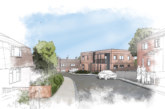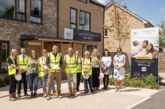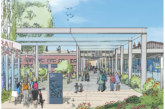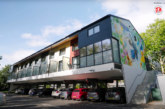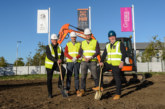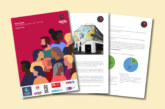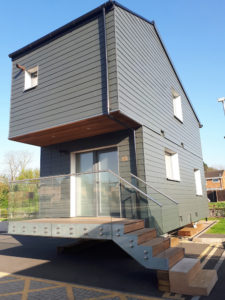
Following on from the inaugural exhibition in October 2018, the Bristol Housing Festival’s (BHF) first two projects are now underway. Demonstrating innovation in technology, community building and land use, these projects are being made possible by the multiple partner collaborations on each scheme.
The ZEDpods in St. George development proposes 11 homes over the Chalks Road car park, adjacent to St George Park. It pioneers a way to create a 100% affordable and low carbon housing development over an existing land use.
ZEDpod is a new concept in high-quality, rapid build, modular low energy homes that can use air rights above existing land within city centres, such as car parks. The apartments can be raised above existing car parking spaces, which continue to be available for public parking. The homes have been optimised for energy efficiency and the lowest possible running costs, with solar panels to generate renewable electricity in the day, quiet running heat pumps for low energy heating, controlled ventilation which recovers usable heat from inside the building whilst bringing in fresh air, triple glazing, LED lighting and energy efficient appliances.
This environmental and socially focused development will deliver much needed affordable housing in the area for young professionals and others at risk of housing crisis. By creating a mixture of tenures, a new community model will be created to ensure that the support networks are in place for the tenants.
The scheme will offer something truly innovative, a first for the city and of its kind in the UK. The development rethinks existing land use, often in central locations, demonstrating a new possibility in helping solve the housing crisis, whilst at the same time providing beautiful, low carbon housing.
This project is a collaboration between Bristol Housing Festival, ZEDpods, a Bristol based Housing Association, the YMCA, Bristol and Bath Regional Capital and Bristol City Council. A public consultation for the scheme will be held on the 1st March 2019.
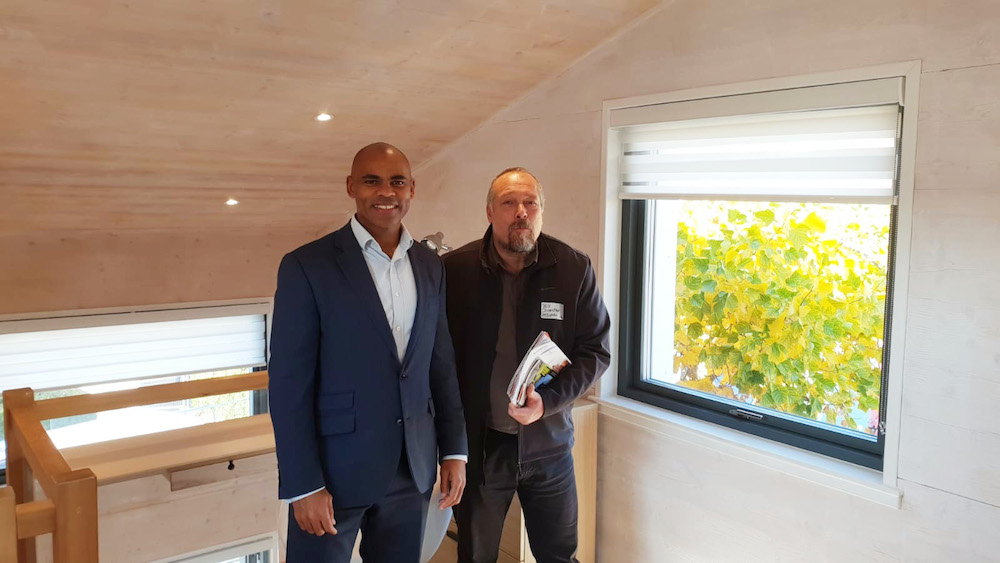
Dr Rehan Khodabuccus, Operations Director of ZEDpods said: “We are excited to have started the planning process and hope to be working with Bristol City Council to deliver 11 Pods to help key workers, and young people with affordable new homes.”
Bill Dunster OBE, Design Director at ZEDpods added: “I’m very pleased that after designing these new homes we can, if planning is agreed, make a real difference to people in this community, with no loss of car parking space.”
The second project is the LaunchPad development — an innovative modular accommodation solution for young independent adults, ready for a new start in life — which will be located on the car park at the bottom of Alexandra Park, Fishponds.
The Project will be for young people moving on from supported housing as well as students from Bristol University. Together, they will be making use of their shared skills to self-manage the scheme.
The 31 new homes will create a mixed community, which supports the young residents’ journey to independent living. It will also bring students together with other young people to create a better sense of community amongst those who are passionate about connecting with others and proactively building a new community.
LaunchPad has been made possible through collaboration between 1625 Independent People, University of Bristol Students Union, The University of Bristol and United Communities.
Oona Goldsworthy from United Communities said: “By investing in LaunchPad, United Communities and our partners are saying, ‘there is a different way to provide homes’, quickly, on land that otherwise wouldn’t be used. These modular homes will create a brand-new mixed community, which after 10 years can be moved to another location.”
Jez Sweetland, Project Director of BHF commented: “I am delighted that these first two projects of the Bristol Housing Festival demonstrate our commitment to innovation, collaboration and learning together. These projects show how we can create prototypes that we believe will help us learn how we build healthy communities and contribute solutions that may help start to tackle the challenges of our housing crisis.”



